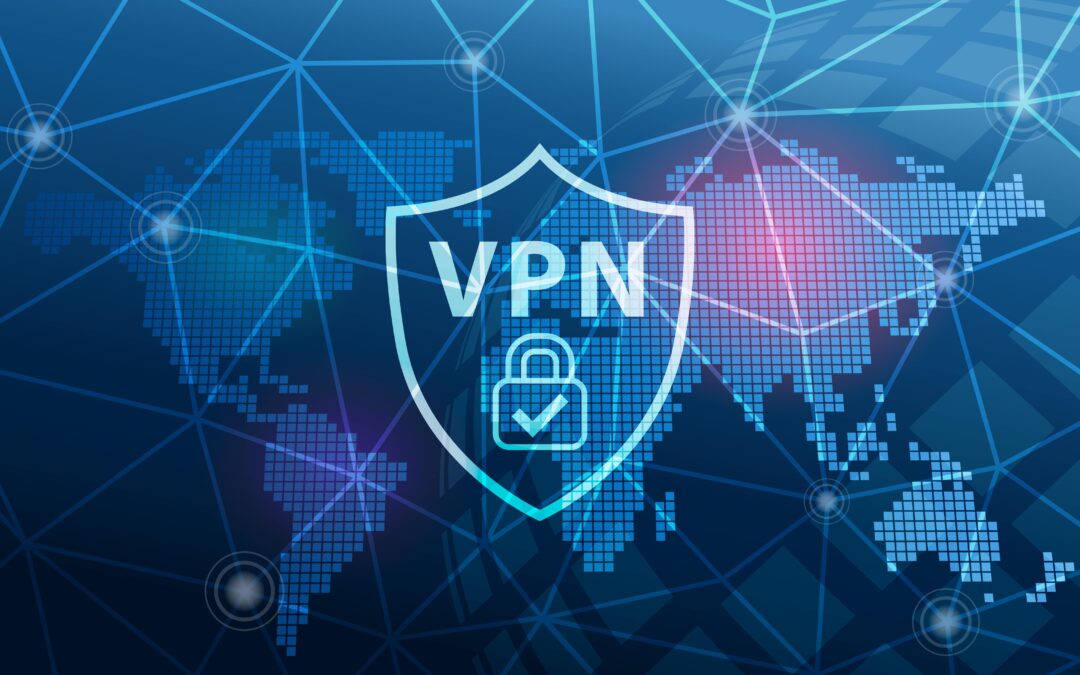Americans are starting the new year with a surprising decision: downloading virtual private networks (VPNs). Media sources indicate that the search term “free VPNs” is up by 400% in states like Florida and South Carolina as new laws about NSFW content take effect and people scramble to keep their privacy.
With the surge of adoption, we think it’s the perfect time to discuss VPNs, the difference between private and business VPNs, and how your business and employees can navigate this technology.
What Is a VPN?
A virtual private network (VPN) is a method of providing end-to-end encryption to users as they connect to the internet. The VPN is almost like a private cabin on a train, allowing you to reach your destination without prying eyes watching what you are doing. Only the person or individuals with the encryption key can decrypt and use data and communications through the VPN.
What Is the Difference Between a Personal VPN and a Business VPN?
Though the goal across virtual private networks is encryption, there are distinctions across VPN solutions. The two main categories are personal VPNs and business VPNs.
Personal VPNs are focused on masking your IP address and encrypting your personal data. They’re perfect for people who want to safely access the internet while using public Wi-Fi or access content or tools that might be blocked while traveling.
Business VPNs, on the other hand, are designed to allow and fortify access to company applications, networks, and data. These tools centralize control in the hands of the IT department and ensure data security to the best of their ability. By using multiple layers of security, business data remains as safe as possible from bad-actor access.
Even with all the above advantages, neither personal nor business VPNs are foolproof. The quality of the VPN solution you or your employer choose determines whether private or business data will be accessible or further security threats will arise.
What Risks Do the Wrong Personal VPN Solutions Pose?

Many free VPNs treat their users as the product, exchanging access to a fairly secured internet connection for the ability to sell data logs they’ve collected on you to third parties. WIRED even reported that Big Mama VPN is selling access to users’ home internet connections, which can empower cybercriminals to use your Wi-Fi as proxy networks for cyberattacks. That’s a risk for your business if employees are accessing files from home.
These free VPNs also tend to take a lackadaisical approach to crafting security best practices and protocols. This leaves users unknowingly exposed while they believe they’re shielded (which can expose your data in a domino effect). Honestly, how secure can encryption be when the provider offers their protection for free?
VPNs can’t circumvent every hurdle. Countries like Russia, China, and Pakistan are barring many well-known VPNs within their borders with varying degrees of penalization. So, if your team is going to remain productive while traveling in these and other censored jurisdictions, it’s important to help them research their options in advance. Otherwise, a working vacation might turn into a blackhole of unproductivity.
What Risks Can Business VPNs Present?
Business VPNs can present their own risks, if not set up properly. Weak encryption on the part of the vendor or carelessness on the part of administrators when concealing keys can make business solutions a see-through fence. Since access is centralized, compromised administrators can also result in cascading exposure of the entire network.
What’s important to remember is that a personal or business VPN is part of a larger cybersecurity strategy. Every enterprise needs multiple layers of security to mitigate cyber threats.
Conducting security awareness training with employees on safe personal VPN and business VPN usage can prevent major issues down the road. If they are primed to avoid untrusted networks without activating the VPN, refrain from sharing login credentials, spot phishing scams, and practice secure browsing habits, they’ll be better equipped to safeguard your sensitive data.
Moreover, administrators should regularly ask users to adjust access habits as a way to ensure security and privacy remain a focal point of their digital behavior. Finally, make sure that your security solutions are designed to complement each other, including:
- Multi-Factor Authentication (MFA)
- Managed Detection and Response (MDR)
- Endpoint Detection and Response (EDR)
- 24/7 Security Operation Networks (SOC)
- Regular Security Audits
While a business VPN offers robust protection, it works best as part of a broader strategy that evolves to counter emerging threats.
Adopting a business VPN is only one component of a comprehensive security strategy. Cubex Group Security Solution can help to protect your team, data, and assets from cyberthreats.
Related Articles
What Is the Difference Between EDR and MDR in Your Cybersecurity Solutions?
Law Firm Prevents Phishing Attack with Cubex Group Security Solution
Why One New iOS 18 Feature Is a Blessing to Communication AND a Threat
